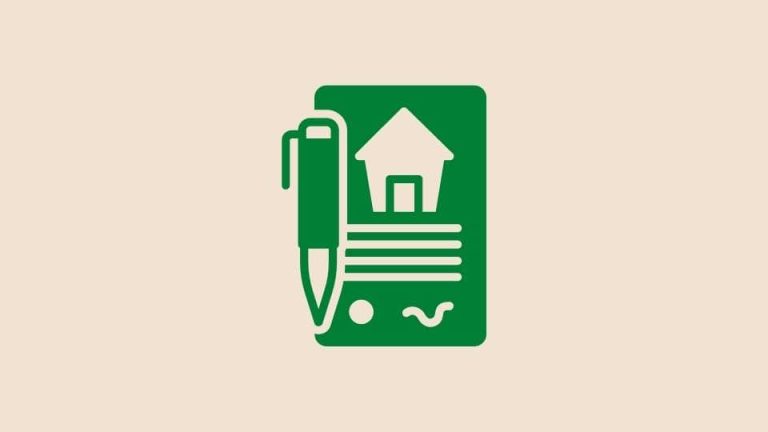How Long Does a Landlord Have to Fix Sewage Backup?
Imagine waking up one morning, ready to take on the day, only to discover that your apartment is flooded with sewage. A nightmare, isn’t it? For tenants, a sewage backup is not only an inconvenient hitch but also a significant health hazard. So then, precisely how long does a landlord have to fix a sewage backup?
The answer, though it may vary with location and severity of the issue, is usually ‘as soon as possible’, typically within 24-72 hours from the time the problem was reported.
This article will unravel the thread of understanding sewage backup, legal obligations, tenant rights, percentage of time allotted for fixing the issue, and measures to take if there are delays. Incorporated throughout are also tips for cultivating a mutually respectful landlord-tenant relationship, critical to navigating these issues smoothly.
Put on your explorer hats, and let’s delve into the details!
Understanding Sewage Backup: A Tenant’s Nightmare
Imagine this – you wake up to find your home invaded by sewage backup. It’s a nasty and often health-threatening situation that demands your immediate attention. Sewage backup means that wastewater is seeping into your home, either through the toilet, sinks, or floor drains. It’s unpleasant, unsanitary, and at worst, can pose serious health risks.
The reasons behind sewage backup can range from simple clogs to severe problems with the sewer line. Regardless of the reason, it’s a problem that needs to be resolved as quickly as possible.
So, the question arises, who is responsible? Usually, it’s the landlord’s responsibility to ensure that the rental unit remains habitable for the tenant, and that includes fixing any sewage backup. But how long do they have to fix the problem? Let’s dive in deeper.
The Landlord’s Timeframe for Fixing Sewage Backup:
Generally, a landlord is expected to address and rectify sewage-related problems as soon as possible. However, the specific timeframe can depend on various factors such as the severity of the situation, the governing laws in your jurisdiction, and the particular terms of your lease agreement.
Keep in mind, it’s crucial to report the issue to your landlord immediately once you notice the sewage backup. This allows the problem to be addressed promptly and prevents further damage or inconvenience.
Should the issue persist or if your landlord is not taking immediate action, it’s crucial to know your rights and possible recourse. We’ll touch on this in the subsequent sections of this article.
It’s essential to remember this:
- You have rights as a tenant, and one of those is the right to a habitable living environment.
- If your landlord is not responsive or refuses to fix the sewage backup, you may have legal grounds to take further action.
In the meantime, while sewage backup is certainly a dreadful situation, understanding why it occurs and how to prevent it can go a long way.
Preventing Sewage Backup:
The following are some steps that can be taken both by tenants and landlords alike to help prevent sewage backup:
- Avoid flushing anything besides toilet paper down the toilet.
- Don’t pour grease or oils down the sink as these can solidify and clog the pipes.
- Maintain your sewer lines regularly; landlords can arrange for a professional inspection of the sewer lines annually to catch problems early on.
In the following sections, we’ll further explore the legal obligations, the rights of tenants during repairs, and other related aspects. So, stick around!
Legal Obligations: Landlord’s Responsibility to Fix Sewage Backup
As a tenant, it’s essential to understand that your landlord has legal responsibilities when it comes to addressing issues like sewage backups. The law emphasizes a landlord’s duty to maintain a ‘habitable’ living environment, and dealing with sewage backups falls squarely within these expectations.
Habitability, the keystone of any lease or rental agreement, essentially implies that the property is fit for humans to live in. A sewage backup can make an apartment or house uninhabitable, which is a clear breach of a landlord’s responsibilities.
Know that it’s not only your right as a tenant to have issues like sewage backup fixed promptly, but the landlord is legally obligated to do this.
So, what does this mean in actual terms?
Firstly, if you have made your landlord aware of the issue and they have failed to address it within a reasonable time—or at all—this could be considered a violation of the implied warranty of habitability. This is notwithstanding the fact that the lease may not explicitly mention anything about repairs or maintenance of any sort.
Secondly, if the sewage issue makes the premises unlivable and the landlord still fails to act, it might be possible for you to move out and end the lease without penalty, called constructive eviction. Check with your local tenancy laws or legal advisor before proceeding with this step.
| Key Consideration | Description |
|---|---|
| Implied Warranty of Habitability | This legal doctrine states that all landlords must offer and maintain livable premises for their tenants. Failing to resolve serious issues like sewage backup can breach this warranty. |
| Constructive Eviction | If the property condition is unbearable due to the landlord’s negligence and the tenant decides to leave the property, it is termed as constructive eviction. |
No matter the situation, open communication is crucial. Keep your landlord informed about the state of the issue, and ensure they’re aware of the severity. Remember to always put your correspondence in writing to protect your rights further and to keep a record of communication.
Assessing the Severity: Evaluating the Impact of Sewage Backup
Let’s face it, having a sewage backup situation is far from delightful. It’s downright nasty, and its severity can range widely. But how does one evaluate the magnitude of a sewage backup? Well, dear reader, let’s delve into it!
The severity of a sewage backup is usually determined by several factors:
- The extent of the property affected by the backup
- The type of damage dealt to the property
- The duration of exposure to the sewage
You see, the more the property is afflicted by the sewage, the higher the severity of the situation. Similarly, if the property has sustained significant damage due to the backup, like erosion or structural instability, this further escalates the severity. Plus, the longer the property has been exposed to this unhealthy situation, the worse it gets.
Remember, prolonged exposure to sewage isn’t just about property damage, it can also pose serious health hazards. That’s making an already bad situation even worse!
Let’s consider different scenarios to get a better understanding:
| Scenario | Severity |
|---|---|
| A single bathroom flooded due to sewage backup, with immediate reporting | Low |
| Multiple rooms affected due to sewage backup but reported within a few hours | Moderate |
| Sewage backup affecting the entire property and not reported until after a day | High |
As you can see, the severity escalates based on the extent of the area affected and the time elapsed before reporting. Thus, it’s advisable that as soon as a sewage backup issue is detected, it should be reported to the landlord promptly to mitigate the extent of damage.
Remember, time indeed is of the essence here. The sooner the issue is addressed, the faster the property can return to normal, ensuring your home becomes a comfortable space once again.
Emergency Repairs: Addressing the Immediate Concerns
First and foremost in such a situation is the need to address immediate concerns. You’ve got to stop the situation from worsening, and that calls for swift action. Your landlord should prioritize presenting a quick solution to halt the progress of the sewage backup, which may involve contacting a professional emergency cleanup service.
Let’s explore some key points in more depth:
- Stopping the Backup: As a tenant, you can play a part in stemming the flow by not using any water in the building. Inform your landlord immediately, as professional help will surely be needed to fully stop the backup.
- Preventing Health Hazards: Sewage backup can pose serious health risks, from bacteria and viruses to parasites and molds. If the backup is significant, your landlord should notify you when it’s safe to return to the property, which may involve testing the area to ensure it’s safe.
- Protecting Property: Anything that has come into contact with sewage should be properly cleaned, if possible, or discarded. Your landlord can help in this respect by providing information about what to do with affected items.
- Stemming Structural Damage: The longer the backup continues, the more severe the potential damage to the property. To prevent further property damage, the landlord needs to act promptly by hiring a professional company to clean and repair the issue.
Your landlord should rely on the help of professionals, not only to repair the issue but also to verify that it has been resolved effectively and that you are returning to a safe and clean environment. Any deficiencies must be addressed, as the health and safety of tenants should always be the top priority.
Remember, during these emergency repairs, communication should be consistent between you and your landlord. It is important to know what is happening, what the expectations are, and when you will be able to return to normal life in your rental unit.
Communication is Key: Keeping Tenants Informed
When it comes to dealing with sewage backup, communication is a critical factor for both landlords and tenants. As a tenant, you should immediately notify your landlord of any problems, while as a landlord, maintaining open communication lines is not only necessary but a legal obligation in most jurisdictions.
Immediate Notification
You should alert your landlord immediately if you notice any signs of sewage backup. Without immediate notice, the problem could become more severe, leading to more costly repairs. A simple email or phone call can make all the difference.
Landlord’s Responsibility
On the other side of the coin, landlords are legally bound to acknowledge and address any sewage issue that arises. This involves keeping tenants informed about the situation and any steps being taken to address it. Remember, dealing with sewage backup is not just a matter of courtesy; it’s about health, safety, and legal obligations.
Regular Updates
As a tenant, you have the right to be kept informed about the progress of any repair work. Regular updates from your landlord about the repair status can alleviate anxiety and consolidate trust. These updates might include the repair timeline, any disruptions that may occur, and actions that might be needed from your side.
Document Everything
Keeping track of all communication between tenant and landlord can be vital if disputes arise. Whether you’re a landlord or tenant, ensure that every email, phone call, or in-person conversation about the issue is documented. Keep a record of dates, times, and the information shared. If things happen to escalate, this could provide valuable evidence.
Note: Effective communication is a two-way street. Both landlords and tenants should work together to resolve sewage backup promptly and efficiently.
Maintaining full transparency will not only help in solving the immediate issue, but it will also contribute to a healthier landlord-tenant relationship. Remember, disaster can strike at any time, and effective communication is one of the best tools to fight it.
Timelines and Deadlines: Reasonable Timeframes for Repairs
When a sewage backup occurs in your rental property, it’s natural to ask, “How long does my landlord have to fix this?” It’s a pressing concern, and for good reason – it portrays a crucial health hazard and hampers the basic functionality of your residence. Though the timelines can vary, understanding the general framework can help set your expectations and inspire action when necessary.
The “Reasonable Time”
Most states in the US stipulate a “reasonable time” framework for landlords to address and rectify urgent repair issues like a sewage backup. Now, you might wonder, “What exactly constitutes ‘reasonable time’?” Alas, the definition of this term is often left open to interpretation. However, it typically hinges on the severity and the extent of the problem, and the degree of risk it poses to the tenants’ health and safety. A severe sewage backup demanding immediate attention would have a shorter reasonable time than non-essential repairs.
The Usual Timeframe
Though it may vary, based on the situation, a frequently observed timeframe for addressing a sewage backup “in a reasonable time” can range from 24 to 48 hours from the point of notification. This is generally seen as sufficient time for a landlord to engage professional cleaning and plumbing services to evaluate and initiate repairs.
Note: If the sewage backup is caused by factors outside the landlord’s control, such as a city sewage line issue, it might necessitate longer repair times. However, the landlord should still be proactive in liaising with the correct authorities to expedite the process.
A Reasonable Timeline (Table)
| Severity of the Issue | Reasonable Time for Repair |
|---|---|
| Minor backup affecting one or two areas | 48 to 72 hours |
| Major backup affecting multiple areas or entire property | 24 to 48 hours |
| Backup caused by factors outside landlord’s control | Depends on external circumstances |
If your landlord exceeds these general timeframes without making measurable progress to fix the problem or providing sufficient explanations, it might be time to consider escalating the issue.
Escalating the Issue: What to Do If the Landlord Delays
If the landlord’s response and actions are not promptly forthcoming, it’s not a hopeless situation. Every tenant has rights and should know how to advocate for them in case of a sewage backup that is not addressed in a timely manner.
First and foremost, document everything. Keep track of the dates and details of all communication with the landlord about the issue. This includes verbal conversations, emails, text messages, and any written letters. These records are vital in case you need to escalate the situation.
If the sewage backup is disrupting your everyday life and the landlord still hasn’t made the necessary repairs, it might be time to take further action. Here are a few steps you might need to consider:
- Notify in writing: Start by sending a formal, written notice about the problem and your expectation for it to be resolved urgently. Express your intent to pursue legal action if the matter isn’t attended to promptly. An emailed notice can serve this purpose, but you may want to opt for certified mail to ensure the landlord receives it.
- Contact local health department: If the issue poses a health risk and the landlord continues to be unresponsive, reporting the situation to your local health department could be an effective next step. They can carry out an inspection and potentially issue an official order for repairs.
- Withhold rent: Depending on your local laws, withholding rent until the issue is fixed could be an option. However, always consult with a legal expert before choosing this route. It’s crucial to ensure you’re acting within your rights and not inadvertently giving the landlord grounds for eviction.
- Repair and Deduct: Some jurisdictions allow tenants to hire a professional to fix urgent issues like sewage backups and then subtract the cost from their rent. Referred to as “repair and deduct”, this option should also be considered under legal advisement.
- Legal action: If none of the above steps lead to a resolution, legal action might be the final resort. A lawyer can guide you on the possible routes to take, which might include suing the landlord for neglecting their responsibilities.
Remember, there are laws to protect tenants from neglectful landlords and deplorable living conditions. Advocating for your rights and seeking legal help when necessary can steer you towards a solution.
Local Regulations: Understanding Your Jurisdiction’s Laws
Once you are in the loop of a sewer backup debacle, it’s essential for you to become acquainted with the local regulations, which will vary across different states, regions, and even cities. These legal guidelines play an instrumental role in defining what is expected of landlords when addressing major issues like sewage backups. Knowledge about these laws is a handy tool to ensure your landlord is appropriately addressing the problem.
For instance, some states have specific statutes that mention “implied warranty of habitability.” In layman’s terms, this sets a legal obligation for landlords to maintain rental properties in a safe and healthy condition. Failing to deal promptly with sewage backups could be viewed as an infringement of this warranty.
Moreover, your local health and sanitation codes could also provide additional legal protections. If sewage backup poses a significant health risk, your local health department might intervene to ensure the problem is fixed. These are just a few examples showing why understanding your jurisdiction’s laws is important.
Here are two key steps to aid in your understanding:
- Perform Online Research: Use credible online resources and local government websites to know your rights as a tenant and the obligations of your landlord. Look for laws pertaining specifically to rental property maintenance.
- Get Legal Advice: If the situation becomes severe and your health, safety, and peace are at stake, seeking legal advice could be a wise move. A professional can help interpret the law and guide your next steps effectively.
Also, bear in mind that it’s crucial to approach the situation with patience and understanding and always attempt to maintain a positive landlord-tenant relationship. However, your health and safety shouldn’t be compromised.
Remember, understanding your local laws and regulations related to rental properties is an empowering step. It gives you the confidence needed to communicate and negotiate proficiently with your landlord.
Tips for a Smooth Resolution: Building a Positive Landlord-Tenant Relationship
Keeping an open line of communication can significantly help in building a positive and lasting landlord-tenant relationship. Here are some tips for both parties to ensure a smooth resolution in case of a sewage backup situation. Remember, cooperation and respect can go a long way to resolving issues swiftly and amicably.
- Be Proactive and Responsible: As a tenant, notify your landlord as soon as you notice a problem. As a landlord, take immediate steps to rectify the issue. A proactive and accountable approach can save both parties unnecessary headaches.
- Open and Honest Communication: Both parties should maintain consistent communication. Tenants should communicate the problem details and landlords should keep tenants informed about repair timelines.
- Respect Mutual Rights: Always remember that both the tenant and landlord have certain rights that must be respected. Understand what your rights are and act accordingly, while ensuring you respect the other party’s rights.
- Cooperate Fully: Whether it’s allowing access for repair work or ensuring that the repair work is carried out promptly, both parties should collaborate fully to solve the problem.
- Seek Legal Assistance if Necessary: If a problem can’t be resolved amicably, either party may consider getting legal help. It would be wise to keep records of all communications and attempts at resolution as they may be required for legal procedures.
In conclusion, dealing with sewage backup can be an unfortunate circumstance but dealing with it promptly and effectively can reduce the impact and frustration associated. A fruitful landlord-tenant relationship is based on mutual understanding, cooperation and respect.
Conclusion
At the end of the day, living in a rental property should be a comfortable and safe experience. A sewage backup can certainly cast a dark cloud over this, but understanding your rights and expectations as a tenant can bring back a silver lining. We hope this article has shed light on the importance of immediate action for swift resolution.
Remember, when it comes to sewage backup issues, the clock starts ticking the moment the problem is reported. As a tenant, you have the right to a timely response from your landlord. And as a landlord, it’s your duty to address these issues promptly. Delaying the process not only affects the quality of life for your tenants but can also escalate legal issues, so it’s in everyone’s best interest to resolve the situation as quickly as possible.
While every circumstance is unique and may involve varying timeframes, the general rule of thumb is the sooner, the better.
Stay vigilant for signs of potential sewage problems and be proactive in addressing them before they become fully blown issues. Improved communication between landlords and tenants can help expedite solutions. And when in doubt, consult with the local housing authority or a legal expert for advice pertaining to your situation.
In a perfect world, these issues wouldn’t occur. But in the real world, if they do, now you know the best way of handling them. So here’s to peaceful and problem-free living!






